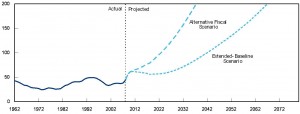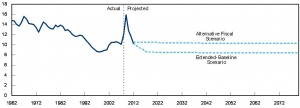|
|
 |
  |
|
 |
|
|
|
| |
| 08/12/09 - Update on Town Halls |
|
Thank you to everyone who attended my town hall on Thursday, August 6, 2009. We proved you don't need police or screeners to have a productive, thoughtful discussion. Please find comments from those who attended below and to view the video, please click here. I look forward to holding another town hall the first week of September.
Derek Abbott - I was there, had no preconceived idea of who you were or what you were made of. John Culberson, you are a true man and a great Texas and American. I am proud to know you and keep up the great work. You truly reflect our conservative values and methods that have been proven to govern effectively.
Susan McCorkle Abbott - I am glad that I went. There were many people that I told about the town hall meeting that were not able to be there that night. I am guessing that was the case for most of us in the room. Thank you for arming us with important information about the Obama healthcare plan to share with people we know. No matter what our opinion, we all need to know the facts, not what CNN, etc is making up.
Bill Stephanos - John, it was a pleasure to have met you. It's nice to know that we have a representative who "gets it". Keep up the great work! I grew up in Massachusetts but thank God for enabling me to raise my family in Texas!
Carol Dare - Thursday was my first Town Hall meeting and I am so glad I came.
more...
|
![]()
|
| |
|
| 07/28/09 - CONGRESSMAN CULBERSON DISCUSSES HEALTH CARE |
|
To view Congressman Culberson's remarks, please click on the screen below.
more...
|
![]()
|
| |
|
| 07/23/09 - STOP THE CENSORSHIP |
|
Today Congressman Culberson and Members of the House leadership spoke out against the censorship taking place in the U.S. House of Representatives. The liberal majority is preventing Members of Congress from sending information to their constituents about the Democrats’ fiscally irresponsible policies. This is another example of the leaderships abuse of power. To view Congressman Culberson speech, please click on the screen below. To learn more about the censorship that is occurring in the House, please click here.
more...
|
![]()
|
| |
|
|
|
| 07/21/09 - JOBS FOR BUREAUCRATS |
|
Members of the House of Representatives went to the House floor today and asked, “Where are all the jobs that President Obama had promised?” Congressman Culberson showed that President Obama and the liberal leadership in Congress had in fact created jobs. Jobs for bureaucrats in Washington, D.C. To view the Congressman’s speech, please click on the screen below.
more...
|
![]()
|
| |
|
| 07/20/09 - VOTES FROM THE WEEK OF JULY 20, 2009 |
|
H.R. 2729 - To authorize the designation of National Environmental Research Parks by the Secretary of Energy. This bill would authorize $175 million over a five year period for the seven National Environmental Research Parks (NERPs) at the Department of Energy (DOE) sites. NERPs are outdoor laboratories that provide opportunities for environmental studies on protected lands around DOE facilities. Their mission is to research a range of subjects including, wildlife biology, ecology, climate change effects, environmental remediation, and maintenance of freshwater ecosystems. The reauthorization allows the Secretary of Energy to enter into cooperative agreements with a university or consortium of universities with expertise in ecology and environmental science of the region in which the National Environmental Research Park is located. In addition, the bill now requires each site to support an outreach program to inform the public of the diverse ecological activities conducted at the park and to educate students at various levels in environmental science. COST: Authorizes $175 million over five years; CBO estimates the bill would cost the federal government $143 million over the FY 2010 – 2014 and $32 million after 2014. NO – The bill passed 330 – 96.
more...
|
![]()
|
| |
|
| 07/20/09 - COMMEMORATING THE 40th ANNIVERSARY OF THE FIRST MOON LANDING |
|
Forty years ago today, millions of Americans watched as the Lunar Module “Eagle” landed on the surface of the moon with Neil Armstrong taking the first steps and remarking, “That’s one small step for (a) man, one giant leap for mankind.” The experiments conducted on the moon’s surface by Neil Armstrong and Buzz Aldrin provided people around the world with new information about Earth’s nearest neighbor. The lunar landing also inspired a new generation of Americans to enter the fields of science and engineering, setting the stage for future NASA successes. In May Congressman Culberson introduced H. Con. Res. 117 which commemorates the 40th Anniversary of our first landing on the Moon, celebrates the success of the United States human space flight program, and recognizes the accomplishments of NASA’s human space flight centers. It is timely to honor the 40th anniversary of the first manned lunar landing while NASA continues human spaceflight today with the Constellation Program. NASA facilities helping to carry out this program include Johnson Space Center, Kennedy Space Center, Marshall Flight Center, and Stennis Space Center. NASA’s greatest asset continues to be its people – the thousands of individuals across the country in both government and industry who conceive, design, build, operate, and manage an ambitious program of space exploration on behalf of our great Nation.
more...
|
![]()
|
| |
|
| 07/16/09 - Statement by Congressional Budget Office Director Doug Elmendorf |
|
Today I had the opportunity to testify before the Senate Budget Committee about CBO’s most recent analysis of the long-term budget outlook.
Under current law, the federal budget is on an unsustainable path, because federal debt will continue to grow much faster than the economy over the long run. Although great uncertainty surrounds long-term fiscal projections, rising costs for health care and the aging of the population will cause federal spending to increase rapidly under any plausible scenario for current law. Unless revenues increase just as rapidly, the rise in spending will produce growing budget deficits. Large budget deficits would reduce national saving, leading to more borrowing from abroad and less domestic investment, which in turn would depress economic growth in the United States. Over time, accumulating debt would cause substantial harm to the economy. The following chart shows our projection of federal debt relative to GDP under the two scenarios we modeled.
Federal Debt Held by the Public Under CBO’s Long-Term Budget Scenarios (Percentage of GDP)

Keeping deficits and debt from reaching these levels would require increasing revenues significantly as a share of GDP, decreasing projected spending sharply, or some combination of the two.
Measured relative to GDP, almost all of the projected growth in federal spending other than interest payments on the debt stems from the three largest entitlement programs—Medicare, Medicaid, and Social Security. For decades, spending on Medicare and Medicaid has been growing faster than the economy. CBO projects that if current laws do not change, federal spending on Medicare and Medicaid combined will grow from roughly 5 percent of GDP today to almost 10 percent by 2035. By 2080, the government would be spending almost as much, as a share of the economy, on just its two major health care programs as it has spent on all of its programs and services in recent years.
In CBO’s estimates, the increase in spending for Medicare and Medicaid will account for 80 percent of spending increases for the three entitlement programs between now and 2035 and 90 percent of spending growth between now and 2080. Thus, reducing overall government spending relative to what would occur under current fiscal policy would require fundamental changes in the trajectory of federal health spending. Slowing the growth rate of outlays for Medicare and Medicaid is the central long-term challenge for fiscal policy.
Under current law, spending on Social Security is also projected to rise over time as a share of GDP, but much less sharply. CBO projects that Social Security spending will increase from less than 5 percent of GDP today to about 6 percent in 2035 and then roughly stabilize at that level. Meanwhile, as depicted below, government spending on all activities other than Medicare, Medicaid, Social Security, and interest on federal debt—a broad category that includes national defense and a wide variety of domestic programs—is projected to decline or stay roughly stable as a share of GDP in future decades.
Spending Other Than That for Medicare, Medicaid, Social Security, and Net Interest, 1962 to 2080 (Percentage of GDP)

Federal spending on Medicare, Medicaid, and Social Security will grow relative to the economy both because health care spending per beneficiary is projected to increase and because the population is aging. As shown in the figure below, between now and 2035, aging is projected to make the larger contribution to the growth of spending for those three programs as a share of GDP. After 2035, continued increases in health care spending per beneficiary are projected to dominate the growth in spending for the three programs.
Factors Explaining Future Federal Spending on Medicare, Medicaid, and Social Security (Percentage of GDP)

The current recession and policy responses have little effect on long-term projections of noninterest spending and revenues. But CBO estimates that in fiscal years 2009 and 2010, the federal government will record its largest budget deficits as a share of GDP since shortly after World War II. As a result of those deficits, federal debt held by the public will soar from 41 percent of GDP at the end of fiscal year 2008 to 60 percent at the end of fiscal year 2010. This higher debt results in permanently higher spending to pay interest on that debt. Federal interest payments already amount to more than 1 percent of GDP; unless current law changes, that share would rise to 2.5 percent by 2020.
more...
|
![]()
|
| |
|
|
|
| 07/14/09 - CONGRESSMAN CULBERSON DISCUSSES THE RECORD SETTING $1 TRILLON DEFICIT |
|
Please click on the screen below to view Congressman Culberson's floor speech.
more...
|
![]()
|
| |
|
  |
|
Archives
|
| |
|
|
|
|
|